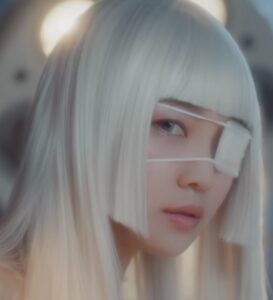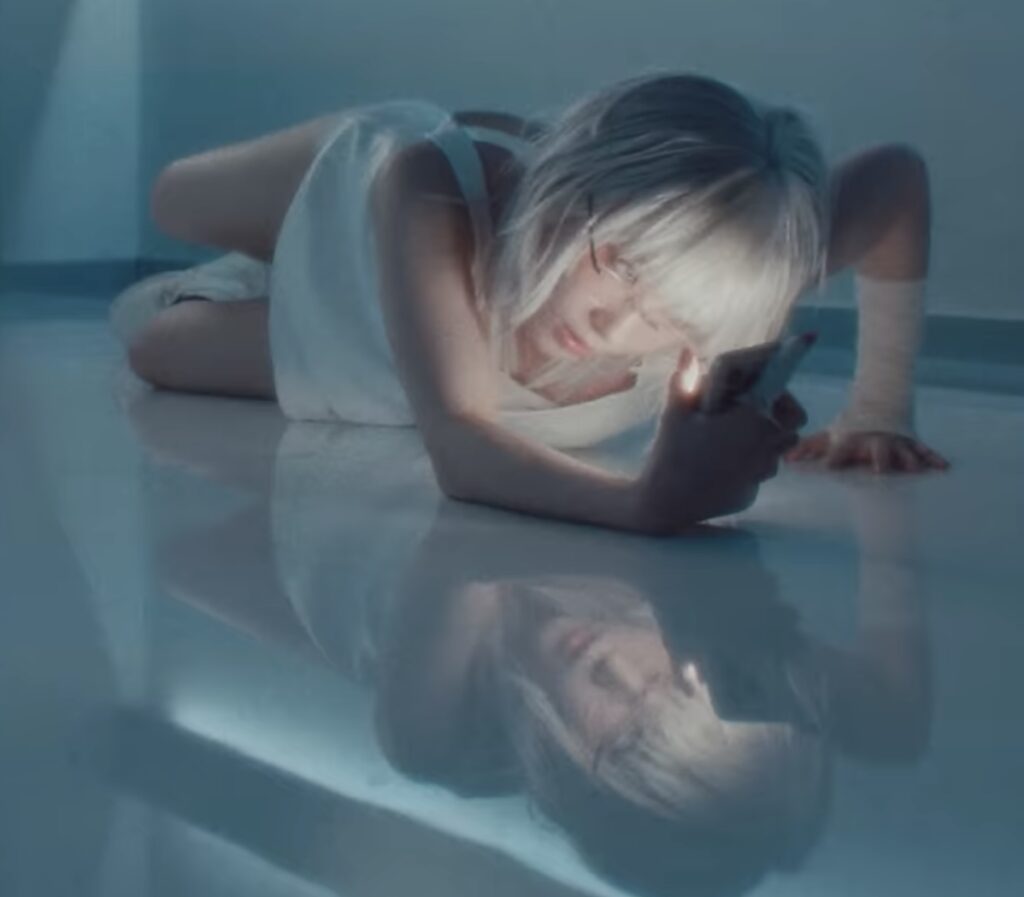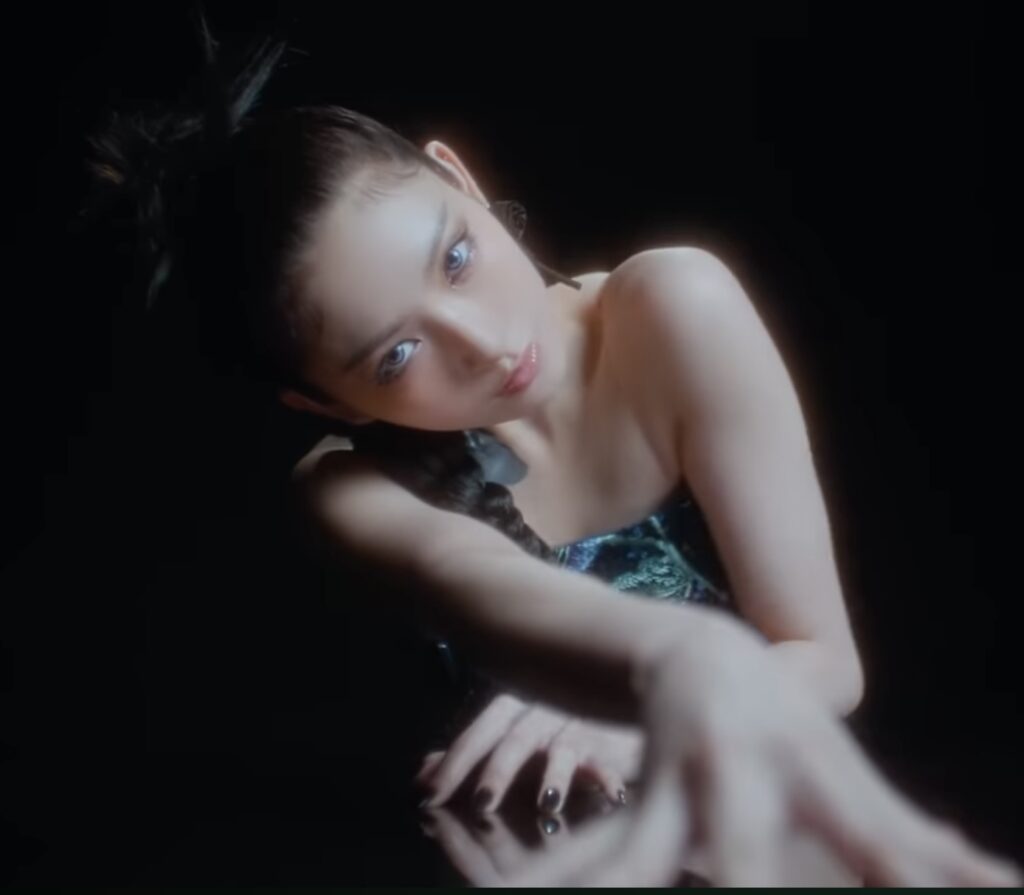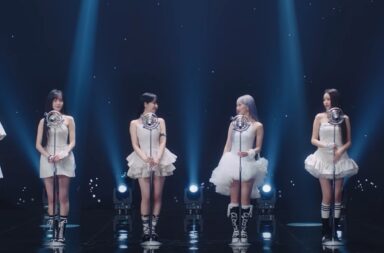
“Zombie” and its accompanying single album mark Everglow’s first comeback after last year’s “Slay.” The group’s previous title tracks (with the exception of the synthwave “La Di Da”) could be categorized as booming EDM anthems that perfected the girl crush concept. “Zombie,” on the other hand, departs dramatically from the group’s typical sound. The song commits to its atmospheric, eerie mood, with minimalistic production choices.
In contrast to most Everglow songs, there are no big beat drops, no hard-hitting dance breaks, and no rap verses (even from rappers E:U and Aisha). These changes are welcome in some respects, but also lack continuity with the elements that make Everglow distinct.
One strength is that “Zombie” goes all-in on its concept. The MV portrays the members as lifeless ‘zombies’ afflicted with loneliness and obsession. With the Everglow members all in white wigs and gowns, in a sterile hospital environment, the world of the MV is literally devoid of color. All of the members grasp phones, which provide the sole source of light in the opening scenes. The MV’s imagery seems to illustrate the effect of smartphones and other technology on people, especially in the moment a phone screen cracks and shatters, recalling the intro to the technological dystopian series Black Mirror.
The song’s lyrics portray a woman devastated by a breakup. As Mia sings in the second verse, “Evеry day I wander, searching for your traces.” In that context, the members become ‘zombies’ by clinging on to these last ‘traces’ of exes on their phones.

The members fully commit to the concept and execute the emotions of it well. In the first verse, for example, Sihyeon establishes the mood of the song immediately with a creepy laugh, followed by haunting vocals in her lower register. Yiren’s movements are particularly striking, with her dramatically arching her back and twisting herself on her hospital bed. Onda, wearing an eyepatch and a choppy multi-length wig, is chilling and compelling as she leans over other members’ hospital beds. Throughout the video, the members sell the zombie concept in their facial expressions and the details in their movements and choreography.
As the video progresses, however, “Zombie” feels subdued to the point of feeling inert. One could say that this is precisely the point, thematically and conceptually. The song’s pacing reflects a person stuck in heartbreak and feeling detached, like a zombie.
Still, the song could benefit from incorporating more of Everglow’s propensity for bombast. Everglow songs tend to have a powerful bridge or explosive final chorus, and “Zombie” seems to set up for such drama with a desperate gasp, a descent into a swirling black hole, and a sound of flatlining. When Mia resumes the final chorus with another gasp, it would be the perfect opportunity for the sound to match the intensity of the visual imagery, but the song continues at the same tempo. The last few measures, underlying the credits, also feature dramatic strings that would have been welcome elsewhere.

“Zombie” actually would have made a perfect pre-release single, introducing listeners to a shift in Everglow’s expected sound. If it were paired with a more musically dynamic title track, “Zombie” would effectively showcase the group’s versatility. On its own as a title track, however, the song feels somewhat underwhelming, as though the group are holding back on what they can truly do. Everglow’s company Yuehua Entertainment has given the group infrequent comebacks (by K-pop standards), so it remains to be seen how well they can build momentum with the shifts that “Zombie” begins.
(YouTube. Lyrics via Genius. Images via Yuehua Entertainment).


